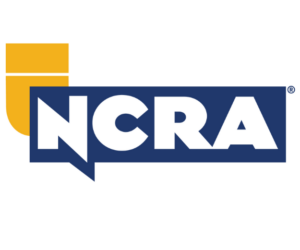H.R. 842, the Protecting the Right to Organize Act of 2021 (PRO Act)
Last week, in our previous Government Relations update, we discussed H.R. 842, the Protecting the Right to Organize Act of 2021 (PRO Act). The bill contains provisions that seek to amend the federal definition of “employee” within National Labor Relations Act (NLRA), and in doing so, attempts to reclassify independent contractors as employees unless:
- The individual is free from control and direction in the performance of the service;
- The service is performed outside of the usual course of business of the employer; and
- The individual is customarily engaged in an independently established trade, occupation, profession, or business of the same nature as involved in the service performed.
In summary, if the provision is implemented, it would reclassify freelancers as employees, unless they can satisfy provisions (A), (B), and (C). If the bill is enacted, the independent contractor status of freelance court reporters, captioners, legal videographers, and scopists may be at risk and their ability to provide essential services may be inhibited. Essentially, the PRO Act is similar to California Assembly Bill 5, which was enacted into law in 2018, except that it would impact freelancers nationally if enacted.
Passage in the U.S. House of Representatives
On Feb. 4, 2021, the PRO Act was reintroduced in the U.S. House of Representatives. After its reintroduction, the bill moved quickly—it went straight to the House Committee on Rules on March 8 for a brief hearing and then headed to the house floor for a vote on March 9 where it passed 225 to 206. The bill now heads to the U.S. Senate, where it will likely be debated among the U.S. Senate Committee on Health, Education, Labor, and Pensions (HELP Committee).
What you can do
When the PRO Act was in the U.S. House of Representatives, NCRA Government Relations publicly urged members of Congress to oppose the bill and sent an opposition letter to all elected representatives sitting on the House Committee on Education and Labor and the House Committee on Rules. Now that the bill is in the U.S. Senate, the letter has been sent to all members sitting on the U.S. Senate Committee on Health, Education, Labor, and Pensions (HELP Committee).
NCRA Government Relations is again urging NCRA members to contact your U.S. senators via phone, email, mail, or social media to fight this legislation. We drafted a template letter, similar to the one that NCRA sent to Congress, that you can email or mail to your U.S. senator. Visit here to find your senator’s contact information. Lastly, it must be noted that, according to the website GovTrack.us, the bill now has a 42 percent chance of being enacted into law—previously, it was projected that the bill only had an 8 percent chance of becoming law. It is critical to adamantly oppose the PRO Act to thwart its passage and to prevent it from resurfacing in the future.
COVID-19 Stimulus Relief
On March 10, Congress passed H.R. 1319, the American Rescue Plan Act of 2021, a $1.9 trillion COVID-19 relief bill. On March 11, President Biden signed the bill into law. The plan has been said to be one of the largest stimulus measures in U.S. history and includes:
- Direct payments: The plan includes stimulus checks in the amount of $1,400 for individuals who make up to $75,000 and $2,800 for married couples who make up to $150,000. Eligible taxpayers will also receive an additional $1,400 per dependent. Payments will be determined using 2019 adjusted gross income for taxpayers that have not filed their 2020 tax returns.
- Paycheck Protection Program (PPP) funding: The plan apportions an additional $7.25 billion to the program and will allow most 501(c) nonprofit organizations to gain access to the program. Additionally, the program’s “affiliation rules” will be revised to allow 501(c)(3) organizations with more than 500 employees and 501(c)(6) organizations with more than 300 employees – but at multiple locations – to become eligible for PPP. However, the measure does not extend PPP past the March 31 expiration deadline.
- Small business measures: The plan allocates an additional $1.33 billion directly to the Small Business Administration (SBA) to carry out small business aid and loan programs; allots an additional $10 billion to expand the State Small Business Credit Initiative to support up to $100 billion in small business financing through state, territorial, and tribal governments; and apportions an additional $15 billion in additional funding for Economic Injury Disaster Loan grants.
- Unemployment benefits: The plan continues $300 in extra weekly federal unemployment benefits through Sept. 6, 2021, and makes the first $10,200 in benefits tax-free for taxpayers making less than $150,000 per year.
- Other measures: The plan also provides a total of $350 billion in total aid to states, local governments, tribal governments, and U.S. territories; distributes $47.8 billion for testing and tracing activities; allocates $11.5 billion to the Centers for Disease Control and Prevention, $7.5 billion of which is for vaccine distribution, administration, monitoring, and tracking; and extends the Employee Retention Credit to Dec. 31, 2021.
For more information about the American Rescue Plan or the Pro Act, please contact NCRA’s Director of Government Relations Jocelynn Moore at jmoore@ncra.org.




